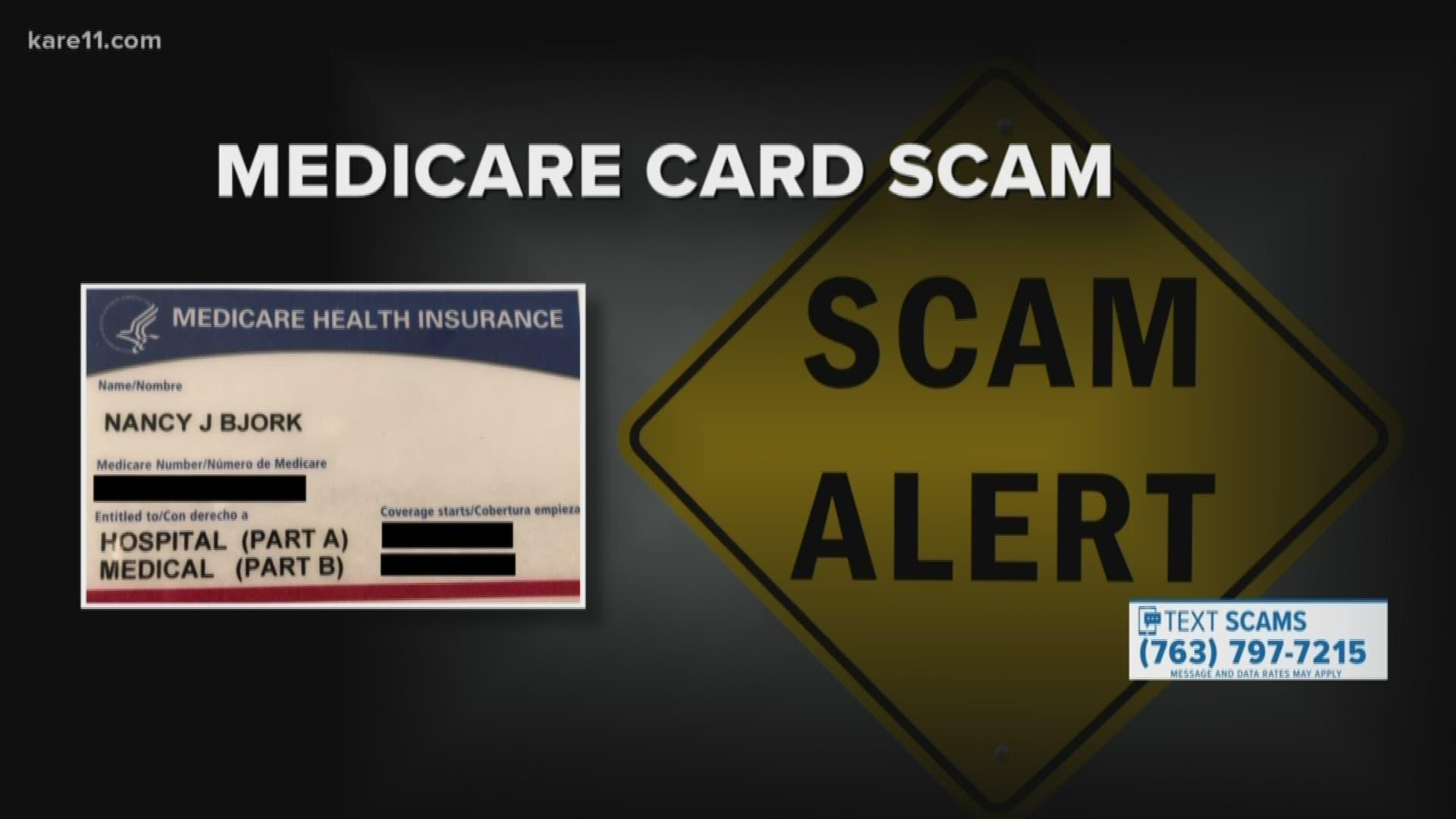BLOOMINGTON, Minn. — Nancy Bjork knew the call was fishy when the woman on the other line identified herself as a representative from Medicare. Still, she was surprised by the 651 area code and the amount of personal information the caller had already.
“She had my name, full name, my address, my birthday. And then she said that Medicare was changing from the paper card to a plastic card,” Bjork says. The woman told her the new card was important because seniors could clean and disinfect the plastic card.
Bjork believed it was an attempt to prey on fear over COVID-19.
Fortunately, she didn’t fall for it. “I said well you’re not really from Medicare are you and then she hung up,” Bjork told KARE 11.
Others weren’t so lucky. Another woman who contacted KARE 11 told us she got a similar call and gave the person her social security number.
The Medicare card scam is one of many making the rounds as unscrupulous people try to take advantage of a national health crisis.
“We’re seeing internet scams related to COVID-19,” said Bloomington Police Chief Jeff Potts.
He has received calls from a number of residents who say they’ve been targeted by fake fundraising emails related to the coronavirus. His own IT staff found a number of phishing emails attempting to trick people into giving up their personal information.
He’s been contacted about scams preying on people’s desire for a COVID-19 test.
Be very careful about clicking on any of these donations buttons. Experts say simply clicking on a link can allow scammers to infect your computer.
And Chief Potts says you should not buy test kits from the internet. “They are, in all likelihood, phony or a scam,” he warned.
Nationally, the FDA and Federal Trade Commission have warned seven companies to stop claiming their products, like teas or essential oils, can treat the Coronavirus. There is no treatment.
People have also been targeted with false claims of a vaccine and with fake websites offering to sell in-demand medical supplies.
Phony charities have sprouted up trying to take advantage of people’s kindness.
Nancy Bjork says she isn’t surprised. “I think it’s terrible. But I’ve lived long enough to know there’s a lot of people out that will take advantage of anything to make a buck,” she said.
“First and foremost, consumers should not share any financial or other sensitive information with anyone who contacts them unsolicited,” reminds Minnesota Commerce Commissioner Steve Kelley.
The Minnesota Department of Commerce shared the following red flags to be on the lookout for:
· Is the e-mail, phone call, or mail from someone you don’t know?
· Is the sender, caller, or item offering you something that seems too good to be true?
· Is the sender, caller, or item using language to incite fear or threaten you?
· Is the sender, caller, or item urging you to “Act Now” before it’s too late?
· Is the sender, caller, or item requesting payment from you and promising to give you something in return after your payment?
KARE 11’s coverage of the coronavirus is rooted in Facts, not Fear. Visit kare11.com/coronavirus for comprehensive coverage, find out what you need to know about the Midwest specifically, learn more about the symptoms, and keep tabs on the cases around the world here. Have a question? Text it to us at 763-797-7215. And get the latest coronavirus updates sent right to your inbox every morning. Subscribe to the KARE 11 Sunrise newsletter here. Help local families in need: www.kare11.com/give11.
The state of Minnesota has set up a hotline for general questions about coronavirus at 651-201-3920 or 1-800-657-3903, available 7 a.m. to 7 p.m.
More information on the coronavirus:

